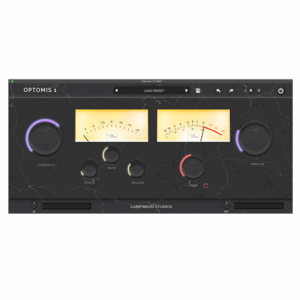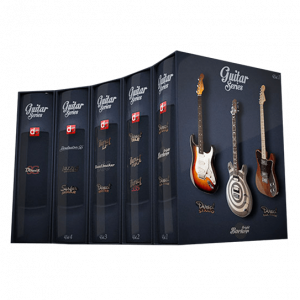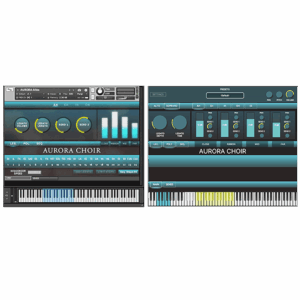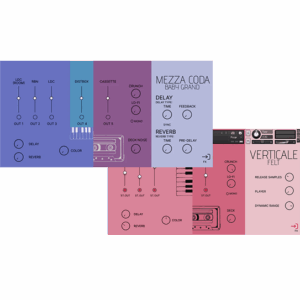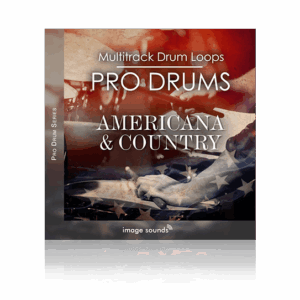Let’s talk about Limiters, what they are, and why you need one
A Limiter is an essential tool in a music professional’s. This goes for music engineers, music producers, and in some cases, beatmakers. The limiter’s purpose is to prevent your audio from exceeding a pre-determined threshold, thus “limiting” the maximum level of the audio output.
In traditional use, you’ll find them hanging at the bottom of someone’s mixing or mastering chain.
Here, they help create a more polished, balanced, and consistent sound. In the case of commercial music, they’re also used to raise the level of the music to commercial standards while maintaining the dynamics.
Quick note: it’s always good to use a Quality Loudness Meter after your limiter. This way, you ensure you’re meeting the proper loudness standards.
Bute Loudness Analyser
Grab That While You Can ^^^
Now more about limiters!
What Are The Benefits Of Using A Limiter
Benefits of using limiters on bus tracks:
- Limiters offer consistency and loudness across multiple tracks
- A limitier help prevent clipping and distortion on the overall mix
- Limiters can also help glue the mix together by compressing and limiting multiple sounds as a whole
- Provides a level of protection for speakers and ears
Benefits of using limiters on individual sounds
- Manage and prevent potential clipping and distortion
- Creative tone shaping (limiter specific)
- Can help bring out certain elements in a mix, such as the attack or sustain of a drum hit
- Provides a level of protection for the speakers and ears
- Make individual sounds very loud (needed in some genres)
Should a Beatmaker Use A Limiter?
You want your music to sound competitive, right!?
In all seriousness…Sure! The use of limiters is not limited to any one group of music professionals. Beatmakers, producers, and mixing engineers all make use of limiters in their workflows.
Beatmakers may use limiters to help control the level of individual drum hits or samples, while producers and mixing engineers may use them to ensure that tracks are consistent in terms of volume and dynamic range.
More importantly, a beat maker should have a loudness metering tool. Even if you’re not planning to handle the final mix and master, it’s still a good idea to try using a limiter and see how your levels compare to the standard levels.
This can help you understand how your music sounds and give you an idea of what to expect in the final mix.
Should a Limiter Be Used Before Sending Stems To A Mixing Engineer?
There are a few ways you can go about this.
- You can always ask the engineer how they prefer music to be sent.
- If the limiter is an integral part of your sound character, keep it on.
- Play it safe and send two versions of your stems. One with and without the limiter on.
This way, the mixing engineer can hear your intent, and if it’s good enough, they’ll keep it. If not, they’ll go for your version without the limiter and reconstruct what you were trying to achieve.
Can Limiters Ruin My Music?
There are some potential downsides to using limiters. Here are a couple of examples.
- Some limiters can introduce unwanted artifacts and even distortion if pushed too hard. They can even cause a bit of unwanted pumping.
- Depending on how hard you push a limiter, you can rob the musicality from the sound, basically flattening the dynamics.
What To Look For When Choosing A Limiter?
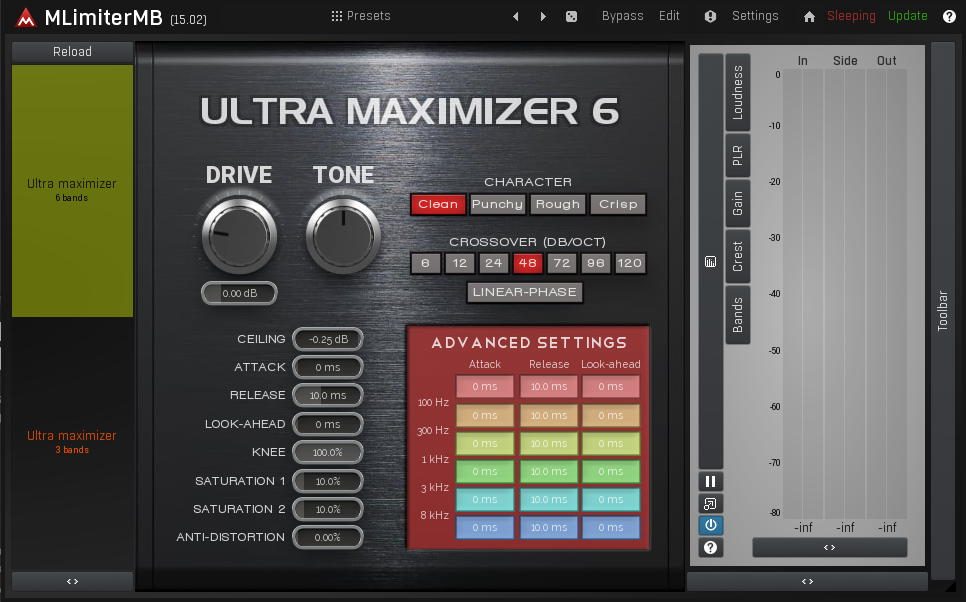
Here are some things I look for when deciding to purchase a limiter
Flexibility & Accuracy: See if the limiter offers; release and attack times, knee settings, and output level meters.
Sound Quality: Does the limiter make your music sound nice? Can it be pushed hard without sounding tacky?
Compatibility: Make sure your OS can handle the plugin. Some companies are not M1 compatible, and others completely disregard older operating systems.
Tone: I love limiters that give me a little color or at least have a toggle where I can choose between transparent and color (or various colors).
Working With Multiband Limiters
When I’m mixing, a multiband limiter plugin is my go to for controlling specific parts of the frequency spectrum without messing up the whole mix.
It’s not something I slap on everything, but it’s great when certain sounds are causing issues, like a bass or overly bright cymbals.
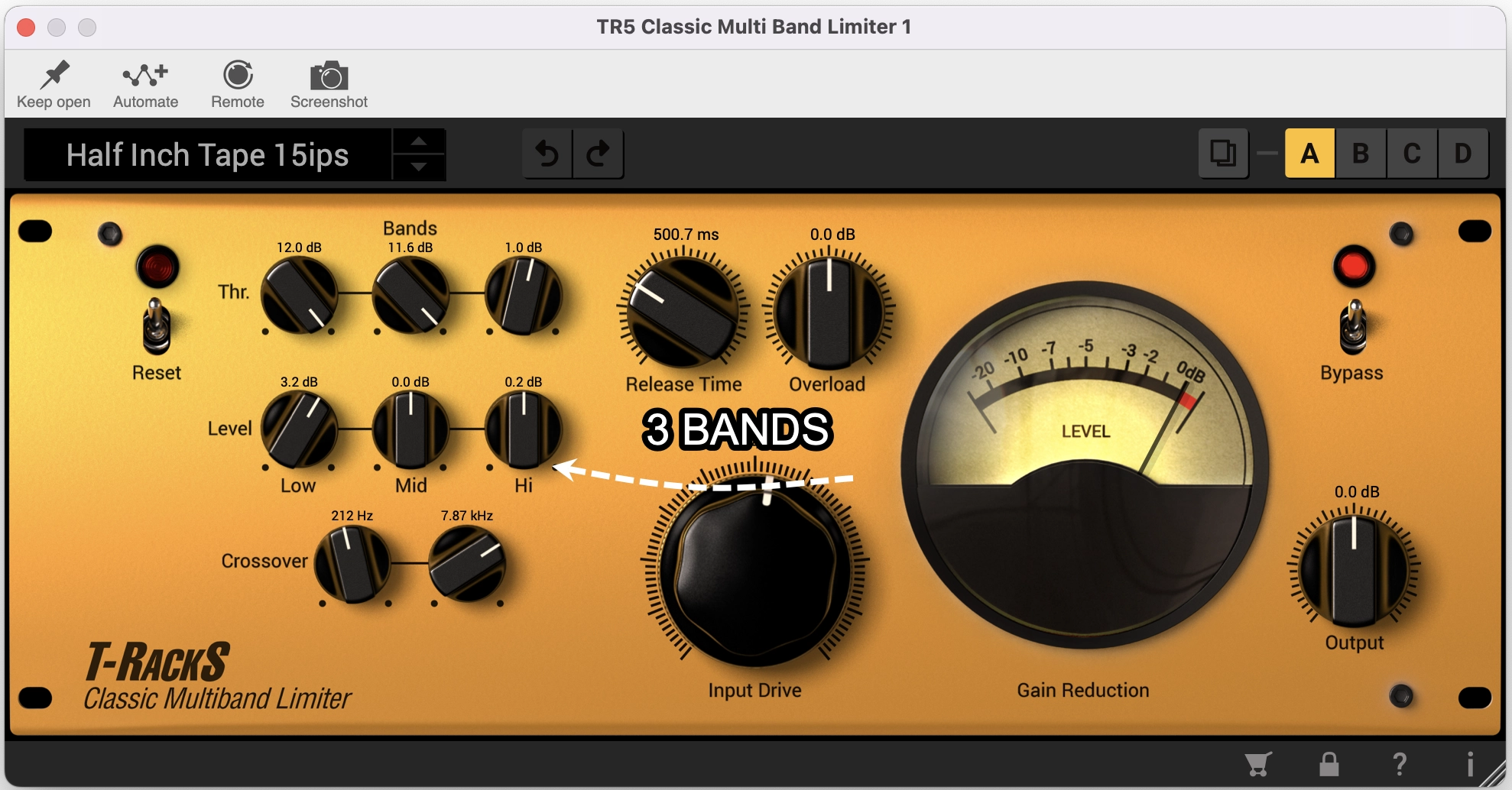
If I’m working on a hiphop track, trap for example, we often have to worry about that 808. Sometimes, the 808 might sound great on its own, but once it’s in the mix, the low end can start overpowering everything.
A standard limiter might control those peaks but risks dulling the entire track. This is where a multiband limiter comes in handy.
I’ll limit the low frequencies so the bass stays punchy and controlled without losing its impact.
Take a pop mix with bright synths that come off a little harsh. Instead of cutting frequencies with EQ and losing that brightness, I’ll use the multiband limiter.
It’ll smooth out the high frequencies like 10 kHz and above, keeping the sharpness in check without dulling the overall shine.
Vocals are another good example. If they’re peaking in the upper mids, I’ll focus on the 3 kHz to 5 kHz range. This reduces the harshness, resulting in smoother vocals, free from those ear-piercing peaks but still full of character.
Finally, on the Mastering Chain. Here, I like to place a multiband limiter on vs a standard limiter, for all the reasons listed above, just across the entire mix.
I want to note that it is a subtle move, just for overall smoothness.
Questions About Using Limiters
Common questions music producers and students ask in regard to using limiters.
Are Limiters Best Used On A Bus Or Individual Sounds?
There are two schools of thought. Some mixing engineers will tell you “limiters should only be used on the master bus or bus tracks”, while others suggest using them wherever they are needed, including individual tracks.
Both schools of thought are correct but consider this.
When using a limiter on the master bus, you’re controlling all sounds hitting the bus, managing their levels and potential distortions. You have the same control when you use limiters on individual sounds, but before the sound reaches the bus.
Depending on the genre being produced, using a limiter over a compressor can be ideal, mainly when dealing with loud information, especially when working with Epic Cinematic Sounds.
However, the downside of using limiters, in general, is tricking yourself into thinking the results are better because they’re are louder.
That said, using the limiter can be easily overdone, especially when it’s spread across; the instrument bus, mix bus, and individual sounds.
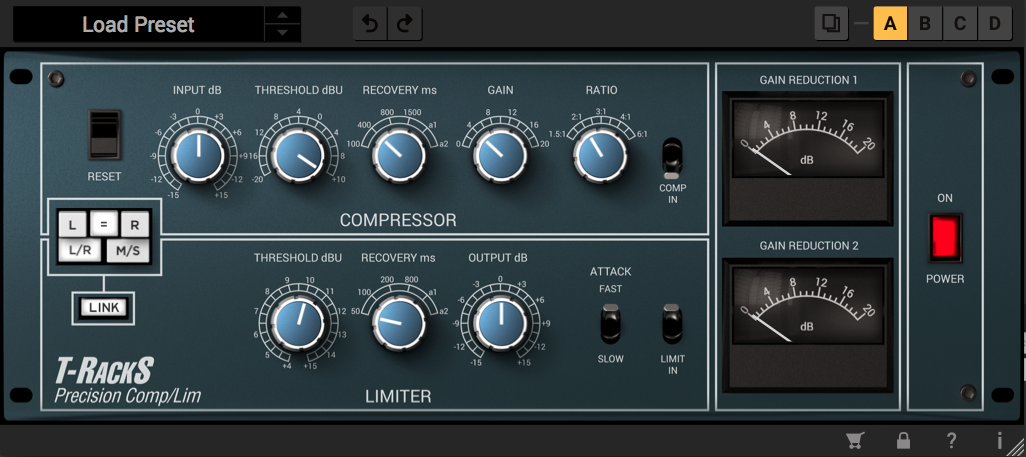
When Should I Use A Limiter On Individual Sounds?
I’d suggest using a limiter over a compressor when the limiter has features a compressor doesn’t or all out does a better job of controlling peaks.
A good example would be if you have a drum bus with a limiter on it, but you’re still peeking, and to control the peak, you dial in the limiter a little bit more, but now the drums are sounding too smashed.
In this case, you would go into the individual drum tracks and apply some compression to see if you can remedy this at the track level.
However, in doing so, you find that the compressor isn’t getting the job done. This is where you could use a limiter to further squash or tame the sound.
With that said, using a limiter on an individual sound could also be a creative choice.
What's a Good Limiter That Gets The Job Done But Not Too Feature Rich and CPU Heavy?
The T-RackS Brickwall Limiter is a great choice if you want something simple that gets the job done.
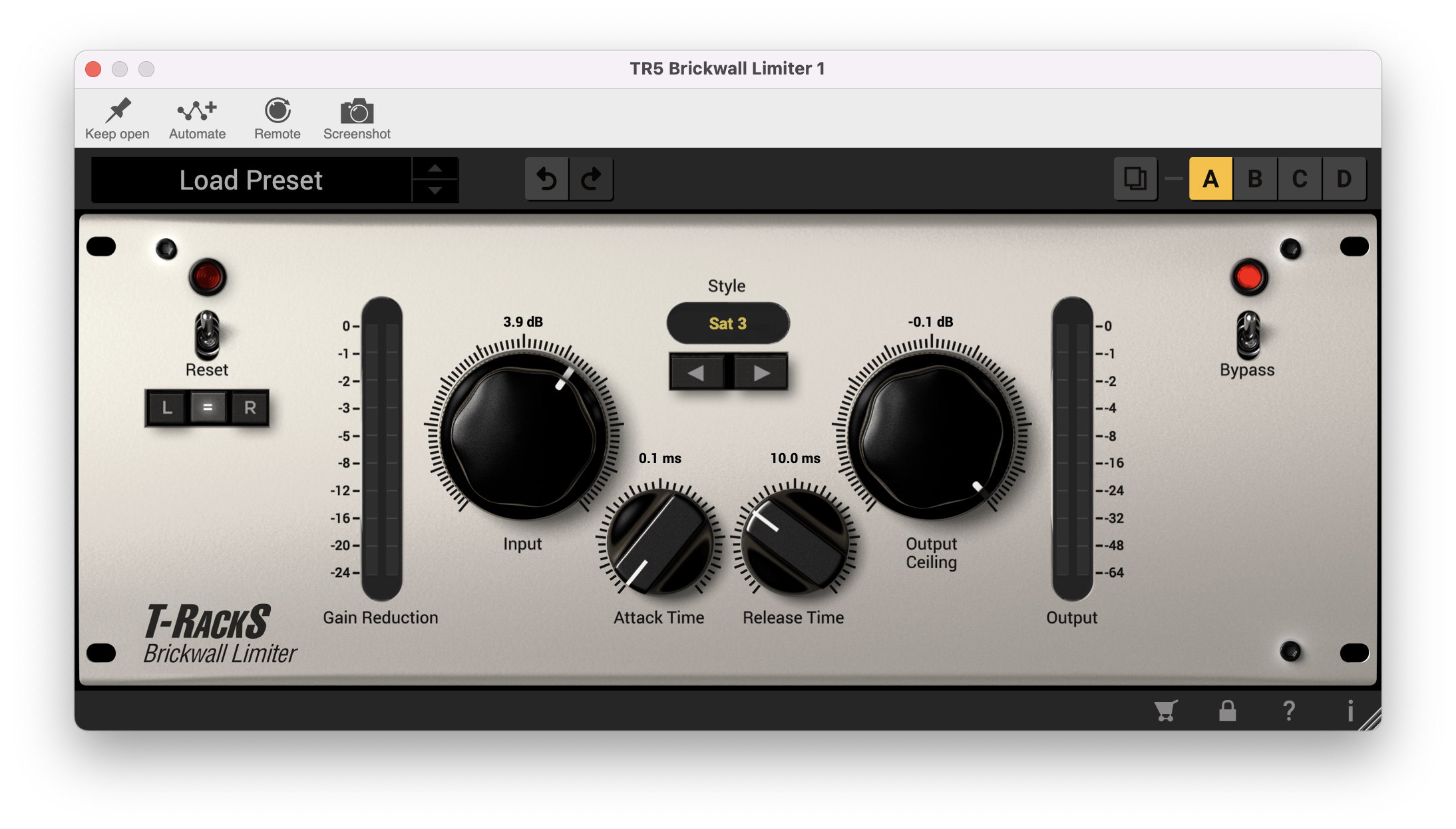
Ranking
- Simplicity: 9/10 – It’s super straightforward, making it perfect for beginners or when you want a quick mastering solution.
- Transparency: 8/10 – It gets loud without introducing a lot of distortion, which is ideal for clean mastering.
- CPU Efficiency: 9/10 – Pretty light on system resources, making it great for large sessions.
- Advanced Controls: 6/10 – This limiter isn’t for you if you’re looking for a lot of bells and whistles. But if you need simple peak control, it’s a winner.
For producers who need an easy limiter for mastering, the Brickwall Limiter will help you quickly get your tracks ready for streaming and playback on any system.
Limiter Hacks Every Music Producer Should Know to Improve The Quality Of Their Music
Here are 5 quick and easy ways to use limiters during mixing, so you can keep your sound balanced.
| Limiter Tip | Why it Works | Recommended Limiters |
|---|---|---|
| Tame Peaks on Individual Tracks | Use a limiter on individual tracks like vocals or drums that have inconsistent peaks. Set the threshold just below the loudest peaks to catch only the highest transients, keeping the dynamic range intact. | FabFilter Pro-L 2, T-RackS Brickwall Limiter, Waves L1 |
| Control Your Kick & Snare | A limiter can help control kick and snare elements, making sure they’re loud and clear without distorting or clipping. Apply gentle limiting to maintain their punch and presence. | FabFilter Pro-L 2, Waves L2, Sonnox Oxford Limiter |
| Keep Bass Tight | Bass frequencies can get out of hand quickly. Apply the limiter to your bass bus to keep the low-end clean and punchy. | FabFilter Pro-L 2, iZotope Ozone Maximizer, UAD Precision Limiter |
| Smooth Out Dynamic Instruments | Limiters can help even out the dynamics of live instruments like acoustic guitars without heavy compression. Lightly smooth out any overly loud notes or hits to make the instrument more consistent. | Waves L1, PSP Xenon, FabFilter Pro-L 2 |
| Protect Your Mix Bus | Use a very limiter lightly on the mix bus to catch any rogue peaks that could sneak through. | FabFilter Pro-L 2, Slate Digital FG-X, Waves L2 |
Now, a compressor can also work here, but using a limiter during the mixing stage on individual sounds can be more effective when you need to strictly manage peaks without affecting the dynamic range as much as a compressor would.
Here are some examples
- Snare Drum: If your snare hits are inconsistent, a limiter can prevent louder hits from clipping while preserving the punch and overall sound of the snare without overly compressing the rest of the signal.
- Acoustic Guitar: When strumming, louder hits can overpower the mix. A limiter can smooth out those spikes without squashing the dynamics, keeping the strumming in check while retaining the natural feel of the performance.
Conclusion
Limiters are powerful in the right hands, and in the wrong hands can be easy to overused, resulting in music that sounds like squashed crap!
Don’t push levels to compensate for poor leveling, EQ, and basic mixing techniques.
When buying a limiter, look for features that offer flexibility and precision, such as adjustable release and attack times, knee settings, and output level meters.
Take Advantage Of Our Awesome Plugin Deals
Curious about how all the sales and special offers work? Not a problem! You’ll find everything you need to know right there → https://audioplugin.deals/how-it-works/
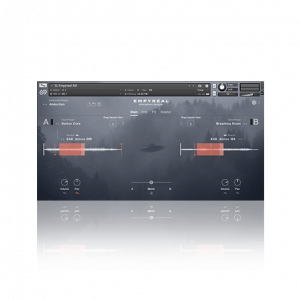
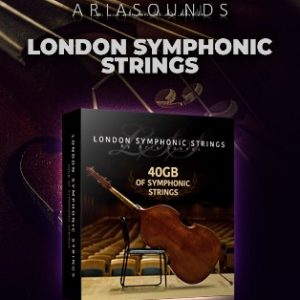
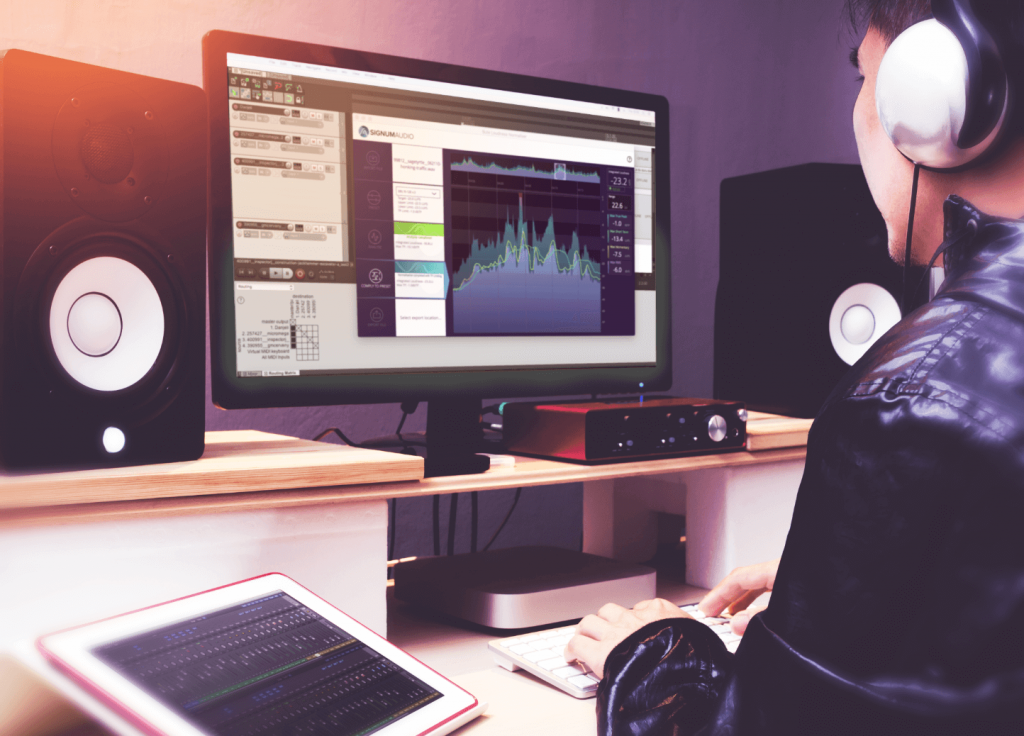
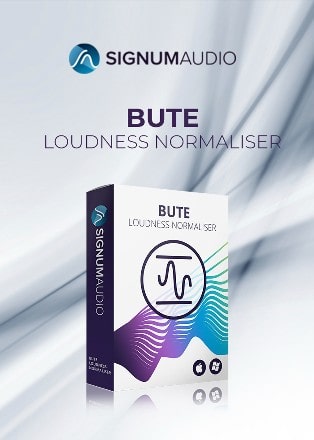



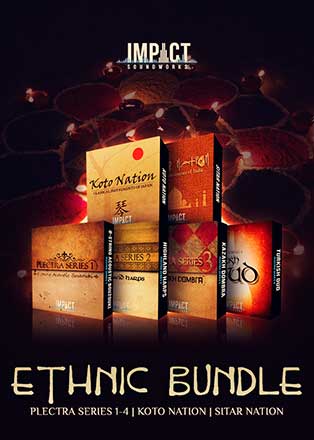
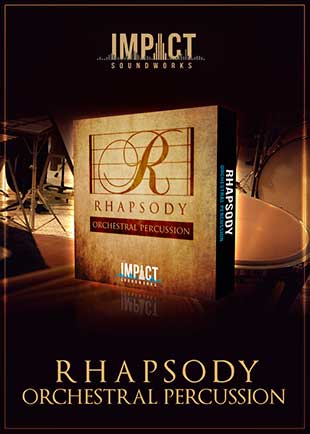
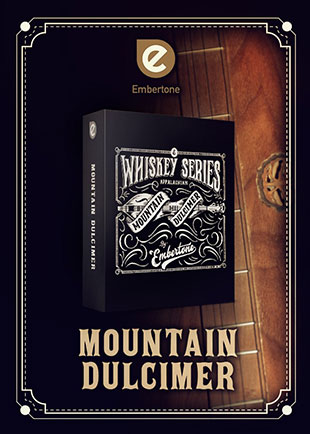

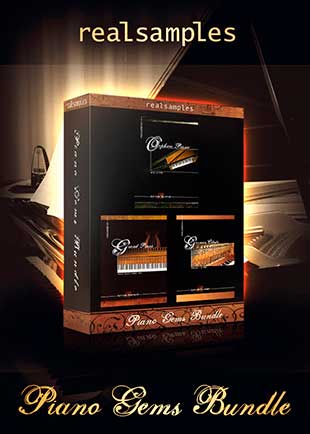





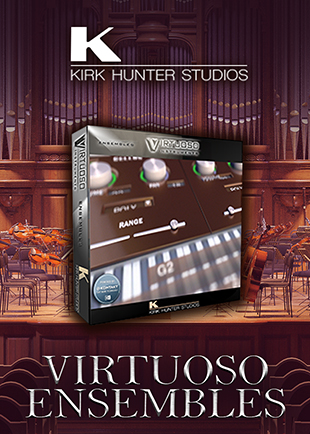



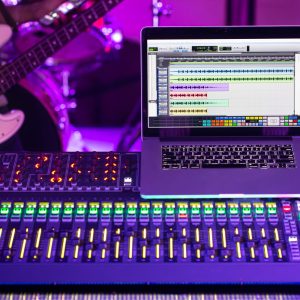

![Earthbeat x[]](https://audioplugin.deals/wp-content/uploads/2026/02/Earthbeat-600x6001-1-300x300.jpg)
![HaBEATat Bundle x[]](https://audioplugin.deals/wp-content/uploads/2026/02/HaBEATat_Bundle-600x6001-1-300x300.jpg)
![OrBEATal Bundle x[]](https://audioplugin.deals/wp-content/uploads/2026/02/OrBEATal_Bundle-600x6001-1-300x300.jpg)
